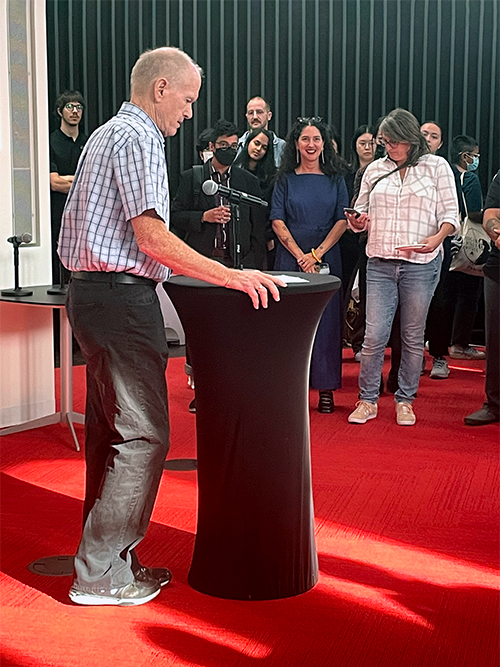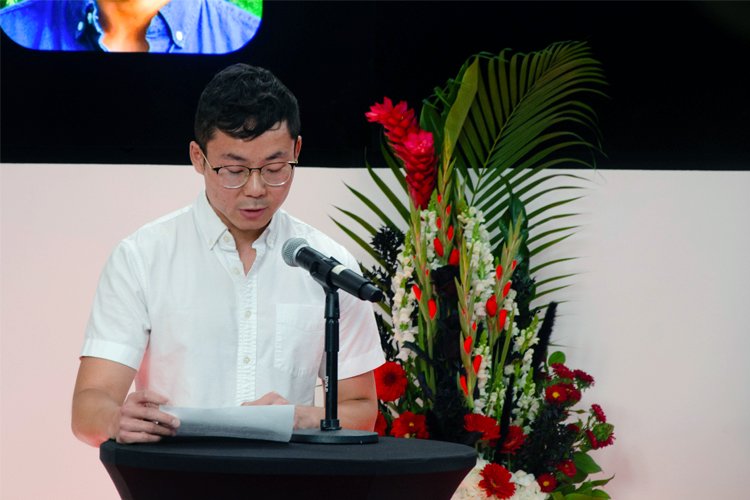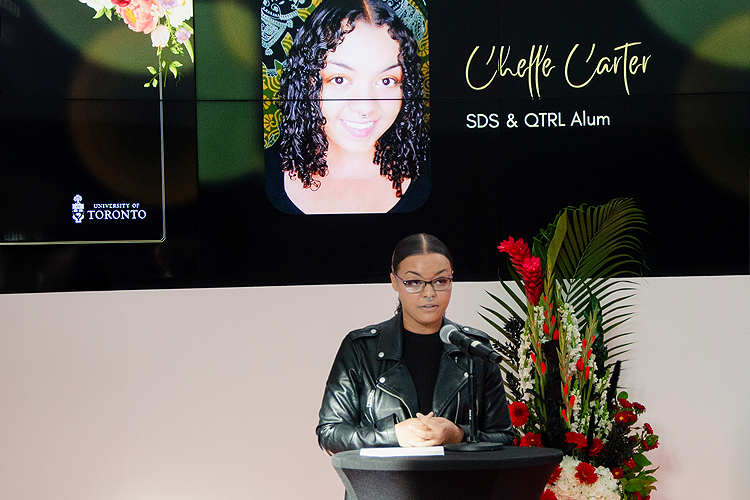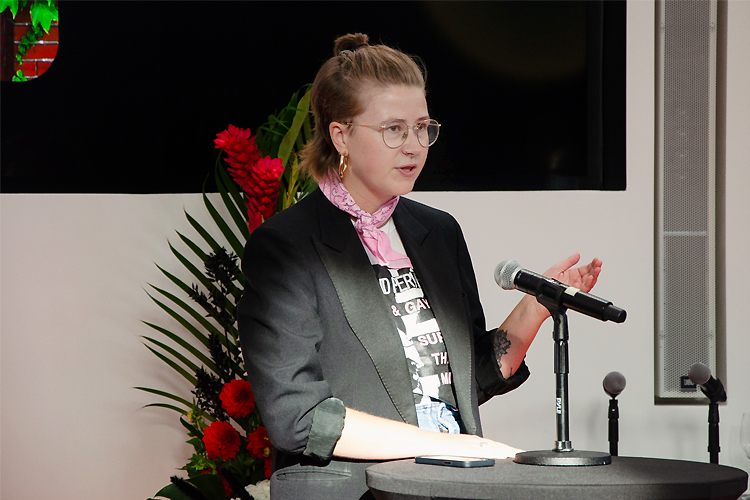On September 27, a reception was held at the Paul M. Cadario Conference Centre at Croft Chapter House to mark the 25th anniversary of sexual diversity studies at the University of Toronto.
Since its founding in 1998, the program has enabled thousands of students and faculty to explore, analyze and challenge how sexuality shapes people’s lives within both local and global contexts. Known since 2004 as the Mark S. Bonham Centre for Sexual Diversity Studies and housed within University College at the Faculty of Arts & Science, its many achievements include an impressive series of lectures, symposia and fellowships, as well as the founding of acclaimed undergraduate journal Hardwire.
Other notable milestones include hosting the three-day WorldPride human rights conference in 2014, the establishment of the Sexual Representation Collection, and the founding of the Queer and Trans Research Lab in 2021.

In her opening remarks at the event, Bonham Centre director Dana Seitler noted that even today, diversity in human sexuality is still not understood or accepted in many places. “So what do we do?” she asked. “For me, at the Bonham Centre, it means doubling down on our commitment to building a better world. And it means that the Centre must work ever harder for imagining practices of change.”
Seitler then introduced David Rayside, professor emeritus in the Department of Political Science. Rayside was a key member of the advisory committee that first introduced a sexual diversity studies program to the University in 1998. At that time, students could choose the program as a minor; in 2004, after Rayside became the Bonham Centre’s inaugural director, he expanded options to include both a specialist and major.
For many years prior to the program’s founding, Rayside had earned a reputation as a strong advocate for the study and research of sexual diversity at U of T. He took the audience back to a time when textbooks on sexuality in U of T courses “paid almost no attention to sexual diversity, and precious little to gender, race or Indigeneity.
“This was not so much a function of opposition, as it was indifference to the idea that such questions were worthy of classroom teaching on their own terms — or that through them you could teach larger lessons about society, culture and politics.”
Rayside noted that U of T’s was not the first such program in Canada, but soon became “the most prominent and among the highest profile academic ventures of its sort in the world.”

The next speakers were graduate student Ian Liujia Tian and recent graduate Chelle Carter. Both offered moving testimonials to the centre’s importance in setting the stage for their future professional endeavours.
Through his experience at the Centre, “I feel validated and sure that what I’m doing is making a difference: it matters, and it has to be done,” said Tian, a PhD candidate who researches LGBTQ+ activism in China.

Carter, currently in their second year of a master’s program at the Factor-Inwentash School of Social Work after graduating as a member of New College, said that “the program has improved my life in so many ways — from Hardwire, to the Sexual Diversity Studies Student Union, to the Queer and Trans Research Lab. I’m very grateful for the opportunity to be part of this incredible, vibrant community.”
The afternoon’s final speaker was Mattea Roach, who’s best known as the most successful Canadian Jeopardy! contestant of all time. Two years before their astonishing 23-game winning streak in 2022, Roach — who noted at the reception that they, too, will be turning 25 this year — graduated from the Faculty of Arts & Science with a bachelor’s degree in sexual diversity studies, with minors in political science, and women & gender studies.

Roach’s remarks addressed the current climate of fear and oppression that is a daily reality for many queer and trans people, and commended the Bonham Centre as a place where that fear could be diffused.
“We do live in precarious times and it’s very disheartening, especially for me as somebody who has to engage with politics through my work, to see this hostility,” they said. “I think the Centre has really been a community space that’s looked at diagnosing the problems in our society, pointing out the ways in which rhetoric has been deployed in really noxious ways against our communities, but also looking toward community-building and finding solutions.”

As the Centre looks toward the next 25 years, it will see a wide range of new initiatives get underway. These include the inauguration of an oral history project, as well as the Queer Directions symposium on March 15, 2024. Seitler says that this event will provide the community with a further opportunity to reflect on how far it has come.
“What have we done well, what do we need to change?” she said. “How should we move forward with these important questions in mind? We continue to challenge ourselves to be better and to do better. We continue to hope and dream for more, and to build the world that we want together.”

